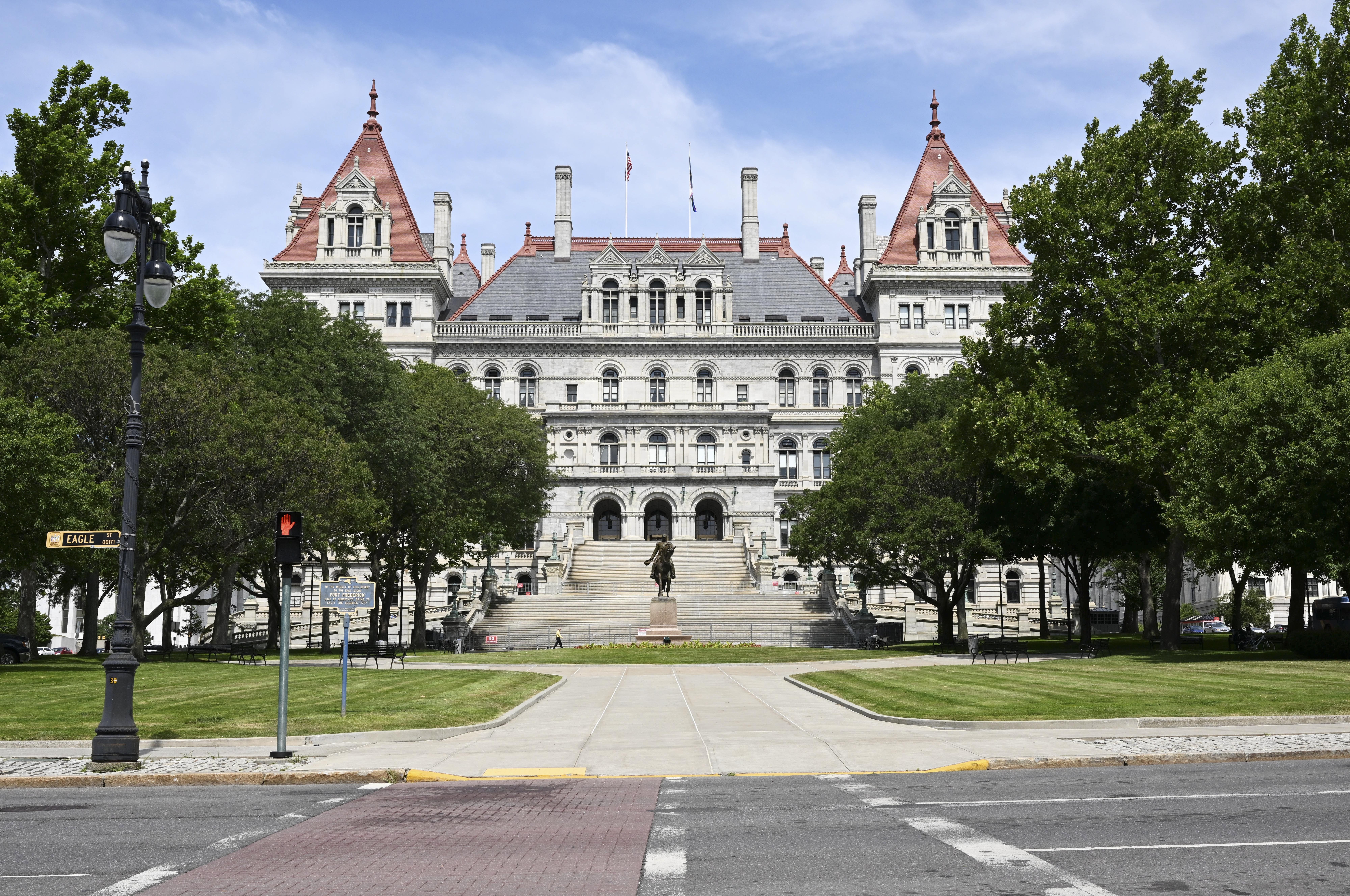
ALBANY, N.Y. — New York legislators on Friday approved a long-stalled proposal to enshrine abortion rights in the state constitution, making New York the latest state to pursue long-term protections in wake of the U.S. Supreme Court’s Roe v. Wade reversal.
The Assembly passed the broad state equal rights amendment, which would add explicit protections for New Yorkers to access abortion care, on a 98-43 vote Friday night. Hours earlier, the Senate swiftly approved the resolution on a 49-14 vote after just minutes of floor discussion.
The legislature’s special session endorsement of the proposal, which was modified to address critics' concerns over potential effects on religious freedom, marks the first major step in a multiyear process to amend New York’s constitution.
The amendment must now pass the newly elected Legislature next year before it can go before voters — something which could happen as early as 2023, but more likely in 2024.
Gov. Kathy Hochul, who added the amendment to the legislature’s “extraordinary session” agenda early Friday morning, said the amendment is “the boldest step” New York can take to ensure abortion access.
“It’s part of our fighting back to protect women’s reproductive freedoms here in the state of New York,” she told reporters at an afternoon briefing. “That [amendment] is going to protect reproductive health in the state of New York for generations to come.”
New York already has among the strongest abortion-rights laws in the nation: State lawmakers codified protections under Roe in 2019 and approved new laws to shield abortion providers and patients from out-of-state litigation in the final days of the 2022 session that ended in early June.
Abortion rights advocates, however, have argued that enshrining it in the constitution would make it even harder to overturn if the political leadership of the state were to change and look to peel back the rights.
The amendment approved Friday would also add new protected classes to the state constitution’s existing Equal Protection Clause — which prohibits discrimination based on a person’s race, color, creed or religion — to bar intentional government discrimination based on a person’s ethnicity, national origin, age, disability or sex, including sexual orientation, gender identity, gender expression, pregnancy, pregnancy outcomes and reproductive health care and autonomy.
Those protected classes would be placed on an equal footing with creed and religion, but the proposal states that the language shall not be “interpreted to interfere with, limit or deny the civil rights of any person based upon any other characteristic identified in this section.”
Critics had raised concerns that previous versions of the proposal would relegate religion to a lower status of protected class. For years, debate over the “creed or religion” issue had stalled progress in Albany.
Sen. Liz Krueger, a Manhattan Democrat who has long pushed for a state equal rights amendment, said “the 1930s-era equal rights language in our State Constitution is long overdue for an update.”
“Women have waited far too long to be included, but so have LGBTQ people, people with disabilities, Latinx people and everyone who has faced discrimination based on characteristics that are beyond their control,” she said in a statement. “In addition, with the Court’s reversal of Roe v. Wade, New York is ensuring the strongest protection for abortion and other reproductive care by enshrining these rights in our Constitution.”
Krueger and Assemblymember Rebecca Seawright (D-Manhattan) introduced new versions of the “Equality Amendment” earlier this week in hopes of moving the proposal during the special session.
Seawright, a Manhattan Democrat and longtime Assembly sponsor of the proposal, dedicated her remarks to mentor and former employer Sarah Weddington, a lawyer who successfully argued before the U.S. Supreme Court in Roe v. Wade.
“As a beacon of our future, New York’s constitution must reflect our broad conception of justice, equal rights and protections against discrimination,” she said in floor remarks. “This is the first step to give the voters the right to make the decision.”
Sen. Shelley Mayer (D-Yonkers) called it “an incredibly important step forward at this moment in time.”
“These essential signature parts of our identity need protection in the state constitution, and particularly the fact that the right to reproductive health services — including abortion and contraception — are defined within the word ‘sex,’” she said in brief floor remarks. “Women and men throughout New York, and the nation, have risen up to say that we must do what we must do to protect these essential rights.”
Mayer said she wished that every state would consider similar proposals, “because at the end of the day, our fellow sisters in Alabama and Louisiana and in other states are going to be seeking justice here in New York for rights they don’t have anymore.”
But Kristen Curran, director of government relations for the New York State Catholic Conference, took issue with the resolution, arguing that “elected officials should stop promoting abortion as a woman’s best and only choice, and focus instead on true support for women, children, and families.”
Despite Albany lawmakers moving a series of abortion-related bills at the end of the session last month in anticipation of the high court overturning Roe, an eleventh-hour effort to secure abortion rights in New York’s constitution initially failed after talks broke down over the “creed or religion” issue.
Senate Majority Leader Andrea Stewart-Cousins told reporters that the Supreme Court’s ruling last week ratcheted up lawmakers’ urgency to finally move the proposal after years of debate in Albany. She noted that Friday’s vote came on the anniversary when New York’s abortion law took effect more than 50 years ago.

 2 years ago
2 years ago








 English (US)
English (US)